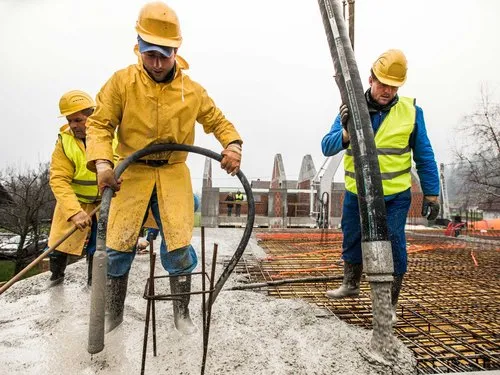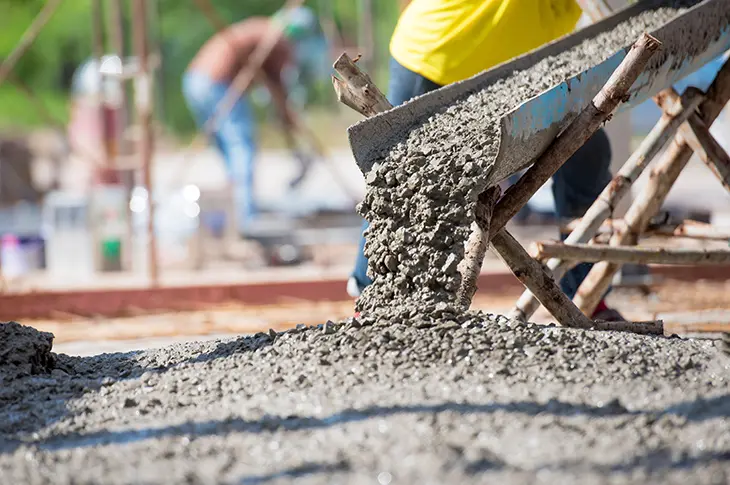When considering different materials for your home’s driveway, it’s essential to weigh the pros and cons of each option. Among the choices available, one of the top considerations is the benefits of installing a concrete driveway over other materials like asphalt, gravel, or pavers. Concrete driveways offer unique advantages that make them stand out, from their durability and cost-effectiveness to their ability to enhance curb appeal and withstand various weather conditions.
In this blog, we’ll explore the benefits of installing a concrete driveway over other materials, highlighting why it’s a preferred choice for homeowners. Whether you’re building a new home or upgrading your existing driveway, concrete could be the ideal solution for both functionality and style.
1. Durability and Longevity
One of the key benefits of installing a concrete driveway over other materials is its unmatched durability. Concrete is known for its ability to withstand heavy loads and regular vehicle traffic without significant wear and tear. Unlike asphalt, which can soften under intense heat or develop cracks over time, concrete remains sturdy and resilient even in extreme weather conditions. A properly installed and maintained concrete driveway can last 25 to 30 years, making it a long-term investment for homeowners.
In contrast, gravel and paver driveways may require more frequent repairs and upkeep, as gravel can shift and create uneven surfaces, while pavers can become dislodged. Concrete’s solid, smooth surface minimizes these issues and offers a longer-lasting, low-maintenance option.
2. Low Maintenance Requirements
Another significant advantage of concrete driveways is their low maintenance requirements. Unlike asphalt, which needs periodic sealing to prevent cracking, concrete requires minimal upkeep. Occasional cleaning and resealing are enough to keep a concrete driveway looking fresh and well-maintained for years. Additionally, concrete is resistant to staining from oil or gas spills, and any stains that do occur can usually be cleaned with a pressure washer.
The benefits of installing a concrete driveway over other materials like gravel or asphalt become even more apparent when you factor in the ease of maintaining a concrete surface. For more information on how to ensure the quality and longevity of your concrete driveway, check out this guide.
3. Enhanced Curb Appeal
Concrete driveways can significantly boost the curb appeal of your home. Concrete offers a smooth, clean, and polished look that enhances the aesthetic of any property. Whether you choose traditional gray concrete or opt for stamped or stained finishes, you can customize the appearance of your driveway to complement the style of your home.
Compared to gravel, which can look unfinished or rustic, or asphalt, which may fade and crack over time, concrete provides a more refined and professional appearance. The ability to customize colors, textures, and patterns further underscores the benefits of installing a concrete driveway over other materials, allowing homeowners to achieve a distinctive look that adds value to their property.
4. Weather Resistance
Concrete driveways are highly resistant to various weather conditions, making them a practical choice in regions with fluctuating climates. While asphalt driveways can become soft and susceptible to damage in high heat, concrete holds up well under extreme temperatures. Additionally, concrete is more resistant to water erosion and freeze-thaw cycles compared to gravel or paver driveways.
In colder climates, where freeze-thaw cycles are common, asphalt can develop cracks and potholes over time, leading to costly repairs. Concrete, when properly installed and sealed, is less likely to suffer from these types of damage, making it a more reliable option for long-term use. This durability in all weather conditions is one of the primary benefits of installing a concrete driveway over other materials.
5. Environmental Benefits
Concrete driveways also offer environmental benefits compared to other materials. Concrete is made from natural resources such as limestone, water, and aggregate, and it is recyclable at the end of its life cycle. Additionally, concrete driveways are reflective, meaning they absorb less heat than asphalt, which can help reduce the urban heat island effect in residential areas.
This eco-friendly aspect of concrete is an important consideration for homeowners looking for sustainable building materials. Asphalt, on the other hand, is derived from petroleum, a non-renewable resource, and contributes to higher surface temperatures due to its heat-absorbing properties.
6. Cost-Effectiveness
While the initial cost of installing a concrete driveway may be higher than asphalt or gravel, its long-term cost-effectiveness makes it a worthwhile investment. Concrete’s durability means fewer repairs and lower maintenance costs over the years. When considering the overall lifespan and reduced need for upkeep, the benefits of installing a concrete driveway over other materials include significant savings in the long run.
Additionally, concrete driveways can increase the resale value of your home, as potential buyers often look for durable, low-maintenance options that enhance a property’s appearance. While gravel driveways may be cheaper upfront, they require frequent replenishment and maintenance, which can add up over time.
7. Safety Benefits
Concrete driveways offer safety benefits that other materials may lack. The smooth surface of concrete provides better traction for vehicles and pedestrians, especially when compared to gravel driveways, which can become uneven and create tripping hazards. Additionally, concrete’s reflective properties enhance visibility at night, making it a safer option for driveways.
Asphalt driveways, while smooth, can become slippery in wet conditions, increasing the risk of accidents. The slip-resistant nature of concrete surfaces adds to the benefits of installing a concrete driveway over other materials, ensuring a safer environment for your family and visitors.
Conclusion
In conclusion, the benefits of installing a concrete driveway over other materials like asphalt, gravel, or pavers are numerous. From its durability and weather resistance to its low maintenance requirements and enhanced curb appeal, concrete driveways offer homeowners a long-lasting, cost-effective solution that improves the overall look and value of their property. Additionally, concrete’s environmental benefits and safety features make it a smart and sustainable choice for any home.
If you’re considering installing a new driveway or upgrading an existing one, concrete is a versatile and reliable option that meets both aesthetic and functional needs. Be sure to consult with a general contractor to ensure proper installation and maximize the lifespan of your concrete driveway. For expert advice and guidance on choosing the right concrete services, check out this guide.



